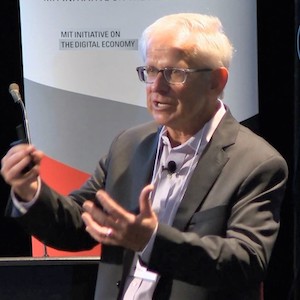 Today in healthcare, platforms are understood mostly as “technology”. That’s not wrong, but it’s limiting. We want to offer you a more expansive view of platforms, and in turn, understand platforms as being more than just technology. This post is the third in our series on The New Rules of Healthcare Platforms. In this essay, we will: Explain why platform business models are NOT new; Share a survey of health plan execs that documents a view of platforms as “technology”; Explain how network effects are the North Star of platform business models and strategy; Expand your view of platforms beyond just “technology.”
Today in healthcare, platforms are understood mostly as “technology”. That’s not wrong, but it’s limiting. We want to offer you a more expansive view of platforms, and in turn, understand platforms as being more than just technology. This post is the third in our series on The New Rules of Healthcare Platforms. In this essay, we will: Explain why platform business models are NOT new; Share a survey of health plan execs that documents a view of platforms as “technology”; Explain how network effects are the North Star of platform business models and strategy; Expand your view of platforms beyond just “technology.”
Latest News
3 Key Open Source Challenges in Developing Countries
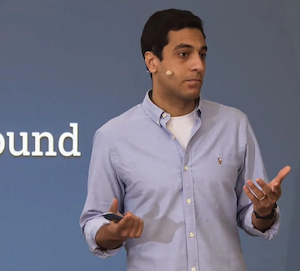 When I go back home and talk to people in the tech industry, or any other industry for that matter, about what I do and the topics I'm involved in daily, I'm usually met with bemusement at the idea of an Open Source Programs Office (OSPO). The concept of a company contributing to an open source project without obvious immediate financial benefit can be culturally strange to understand or explain. As someone born and raised in a country that has been trying to develop for quite some time, I understand and relate to that. There was a point in time when my only understanding of open source was that it was software that I could use without paying and without needing to wait for a specific issue or additional feature to be released. I could just do whatever I needed myself, locally. Open source faces many struggles in developing countries that make how it's perceived and its associations inaccurate and out of touch. I will discuss these struggles in this article.
When I go back home and talk to people in the tech industry, or any other industry for that matter, about what I do and the topics I'm involved in daily, I'm usually met with bemusement at the idea of an Open Source Programs Office (OSPO). The concept of a company contributing to an open source project without obvious immediate financial benefit can be culturally strange to understand or explain. As someone born and raised in a country that has been trying to develop for quite some time, I understand and relate to that. There was a point in time when my only understanding of open source was that it was software that I could use without paying and without needing to wait for a specific issue or additional feature to be released. I could just do whatever I needed myself, locally. Open source faces many struggles in developing countries that make how it's perceived and its associations inaccurate and out of touch. I will discuss these struggles in this article.
- Login to post comments
Two New Federal Reports Released That Have Major Public Health Impacts
 Two new Federal reports were recently released that have a public health impact. First, the Office of the National Coordinator for Health Information Technology (ONC) released its 2022 Report to Congress: Update on Access, Exchange, and Use of Electronic Health Information. This report covers the current state of adoption of health information technology and access to electronic health information guided largely by the requirements of the 2016 21st Century Cures Act. The report observes that, “Although tremendous progress has been made with EHRs that capture and support the use of health information about individuals, the COVID-19 pandemic exposed gaps in health IT systems that support capturing and using population data. The challenges exposed during the public health response to the COVID-19 pandemic pinpointed the importance of health IT to monitor population health regarding public health surveillance of testing, diagnosis, and vaccine distribution.”
Two new Federal reports were recently released that have a public health impact. First, the Office of the National Coordinator for Health Information Technology (ONC) released its 2022 Report to Congress: Update on Access, Exchange, and Use of Electronic Health Information. This report covers the current state of adoption of health information technology and access to electronic health information guided largely by the requirements of the 2016 21st Century Cures Act. The report observes that, “Although tremendous progress has been made with EHRs that capture and support the use of health information about individuals, the COVID-19 pandemic exposed gaps in health IT systems that support capturing and using population data. The challenges exposed during the public health response to the COVID-19 pandemic pinpointed the importance of health IT to monitor population health regarding public health surveillance of testing, diagnosis, and vaccine distribution.”
- Login to post comments
A Whirlwind Tour Of All The Connected Sites That Form The World Of Open Source Social Networks
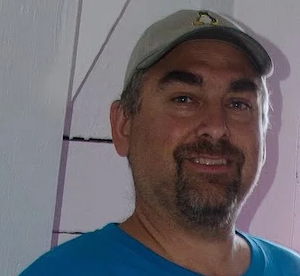 People want to communicate over the internet as easily as they do in real life, with similar protections but, potentially, farther reach. In other words, people want to be able to chat with a group of other people who aren't physically in the same location, and still maintain some control over who claims ownership of the conversation. In today's world, of course, a lot of companies have a lot to say about who owns the data you send back and forth over the world wide web. Most companies seem to feel they have the right to govern the way you communicate, how many people your message reaches, and so on. Open source, luckily, doesn't need to own your social life, and so appropriately it's open source developers who are delivering a social network that belongs, first and foremost, to you.
People want to communicate over the internet as easily as they do in real life, with similar protections but, potentially, farther reach. In other words, people want to be able to chat with a group of other people who aren't physically in the same location, and still maintain some control over who claims ownership of the conversation. In today's world, of course, a lot of companies have a lot to say about who owns the data you send back and forth over the world wide web. Most companies seem to feel they have the right to govern the way you communicate, how many people your message reaches, and so on. Open source, luckily, doesn't need to own your social life, and so appropriately it's open source developers who are delivering a social network that belongs, first and foremost, to you.
- Login to post comments
New Study Shows Patients Prefer Immediate Access to Test Results and have Unmet Information Needs
 A recent study of 8,000 patients that accessed their test results via an online patient portal found that more than 95% wanted to continue to immediately receive test results through their portal. That percentage stayed at 95% when focused on patients with non-normal results. These findings come amid concerns that the immediate release of test results could lead to patient distress when patients access test results before their physicians could contact them and help to interpret those results...since the ONC information blocking regulations became applicable to health care providers on April 5, 2021, a patient may be able to access test results in parallel to those results’ availability to the ordering clinician.
A recent study of 8,000 patients that accessed their test results via an online patient portal found that more than 95% wanted to continue to immediately receive test results through their portal. That percentage stayed at 95% when focused on patients with non-normal results. These findings come amid concerns that the immediate release of test results could lead to patient distress when patients access test results before their physicians could contact them and help to interpret those results...since the ONC information blocking regulations became applicable to health care providers on April 5, 2021, a patient may be able to access test results in parallel to those results’ availability to the ordering clinician.
- Login to post comments
Let's Do Public Health Better
 Eric Reinhart, who describes himself as “a political anthropologist, psychoanalyst, and physician,” has had a busy month. He started with an essay in the New England Journal of Medicine (NEJM) about “reconstructive justice,” then an op-ed in The New York Times on how our health care system is demoralizing the physicians who work in it, and then the two that caught my attention: companion pieces in The Nation and Stat News about reforming our public health “system” from a physician-driven one to a true community health one. He's preaching to my choir. I wrote almost five years ago: “We need to stop viewing public health as a boring, not glamorous, small part of our healthcare system, but, rather, as the bedrock of it, and of our health.” Dr. Reinhart pulls no punches about our public health system(s), or the people who lead them...
Eric Reinhart, who describes himself as “a political anthropologist, psychoanalyst, and physician,” has had a busy month. He started with an essay in the New England Journal of Medicine (NEJM) about “reconstructive justice,” then an op-ed in The New York Times on how our health care system is demoralizing the physicians who work in it, and then the two that caught my attention: companion pieces in The Nation and Stat News about reforming our public health “system” from a physician-driven one to a true community health one. He's preaching to my choir. I wrote almost five years ago: “We need to stop viewing public health as a boring, not glamorous, small part of our healthcare system, but, rather, as the bedrock of it, and of our health.” Dr. Reinhart pulls no punches about our public health system(s), or the people who lead them...
- Login to post comments
How Upstream Contributions Power Scientific Research
 Just as with software development, research under Horizon Europe promotes the adoption of sharing research outputs as early and widely as possible to citizen science, developing new indicators for evaluation research, and rewarding researchers. Horizon Europe emphasizes open science and open source technology. The program evolved from Horizon 2020, which provided financial support for research projects that promoted industrial competitiveness, advanced scientific excellence, or solved social challenges through the process of "open science." Open science is an approach to the scientific process based on open cooperative work, tools, and diffusing knowledge found in the Horizon Europe Regulation and Model Grant Agreement. This open science approach aligns with open source principles that provide a structure for such cooperation.
Just as with software development, research under Horizon Europe promotes the adoption of sharing research outputs as early and widely as possible to citizen science, developing new indicators for evaluation research, and rewarding researchers. Horizon Europe emphasizes open science and open source technology. The program evolved from Horizon 2020, which provided financial support for research projects that promoted industrial competitiveness, advanced scientific excellence, or solved social challenges through the process of "open science." Open science is an approach to the scientific process based on open cooperative work, tools, and diffusing knowledge found in the Horizon Europe Regulation and Model Grant Agreement. This open science approach aligns with open source principles that provide a structure for such cooperation.
- Login to post comments
Open Source Software Is Transforming Healthcare
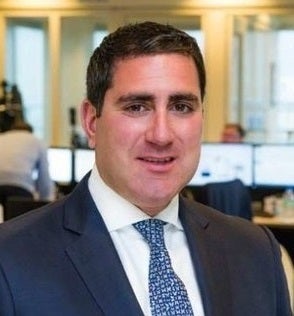 In the summer of 2022, the UK government and NHS England published its Open Source Policy, stating that open source technology is: Particularly suitable for use within the healthcare industry where, through active collaboration between IT suppliers and user/clinicians communities, solutions can be honed to maximise benefits to delivery of health and social care. The public statement by NHS England is just the latest development in a broader trend: The wholehearted embrace of open source software by the healthcare sector. And no wonder; open source presents myriad opportunities for this most complex of industries, with potential solutions across various sub-sectors. Yes, open source is now powering everything from medical wearables to healthcare human resource management.
In the summer of 2022, the UK government and NHS England published its Open Source Policy, stating that open source technology is: Particularly suitable for use within the healthcare industry where, through active collaboration between IT suppliers and user/clinicians communities, solutions can be honed to maximise benefits to delivery of health and social care. The public statement by NHS England is just the latest development in a broader trend: The wholehearted embrace of open source software by the healthcare sector. And no wonder; open source presents myriad opportunities for this most complex of industries, with potential solutions across various sub-sectors. Yes, open source is now powering everything from medical wearables to healthcare human resource management.
- Login to post comments
Some Barriers and Challenges to the CDC's Data Modernization Initiative
 As we have discussed in earlier posts, the Centers for Disease Control and Prevention (CDC) has launched a Data Modernization Initiative (DMI) focused on improving the data management capacity of public health in the United States. The major focus of this initiative is on investments in both people as well as systems and data to improve public health response. Though Congress has appropriated a significant amount of funding for Federal and state, territorial, local, and tribal (STLT) public health agencies, there are some sizable barriers and challenges to seeing the vision for DMI come to fruition:
As we have discussed in earlier posts, the Centers for Disease Control and Prevention (CDC) has launched a Data Modernization Initiative (DMI) focused on improving the data management capacity of public health in the United States. The major focus of this initiative is on investments in both people as well as systems and data to improve public health response. Though Congress has appropriated a significant amount of funding for Federal and state, territorial, local, and tribal (STLT) public health agencies, there are some sizable barriers and challenges to seeing the vision for DMI come to fruition:
- Login to post comments
The New Rules of Healthcare Platforms (Part 3): Platform Thinking Expands from “Technology” to Business Model & Strategy
- Login to post comments
A Data Scientist's Guide To Open Source Community Analysis
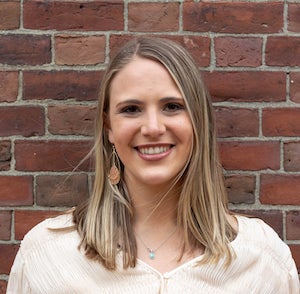 In the golden age of data analysis, open source communities are not exempt from the frenzy around getting some big, fancy numbers onto presentation slides. Such information can bring even more value if you master the art of generating a well-analyzed question with proper execution. You might expect me, a data scientist, to tell you that data analysis and automation will inform your community decisions. It's actually the opposite. Use data analysis to build on your existing open source community knowledge, incorporate others, and uncover potential biases and perspectives not considered. You might be an expert at implementing community events, while your colleague is a wiz at all things code. As each of you develops visualizations within the context of your own knowledge, you both can benefit from that information.
In the golden age of data analysis, open source communities are not exempt from the frenzy around getting some big, fancy numbers onto presentation slides. Such information can bring even more value if you master the art of generating a well-analyzed question with proper execution. You might expect me, a data scientist, to tell you that data analysis and automation will inform your community decisions. It's actually the opposite. Use data analysis to build on your existing open source community knowledge, incorporate others, and uncover potential biases and perspectives not considered. You might be an expert at implementing community events, while your colleague is a wiz at all things code. As each of you develops visualizations within the context of your own knowledge, you both can benefit from that information.
- Login to post comments